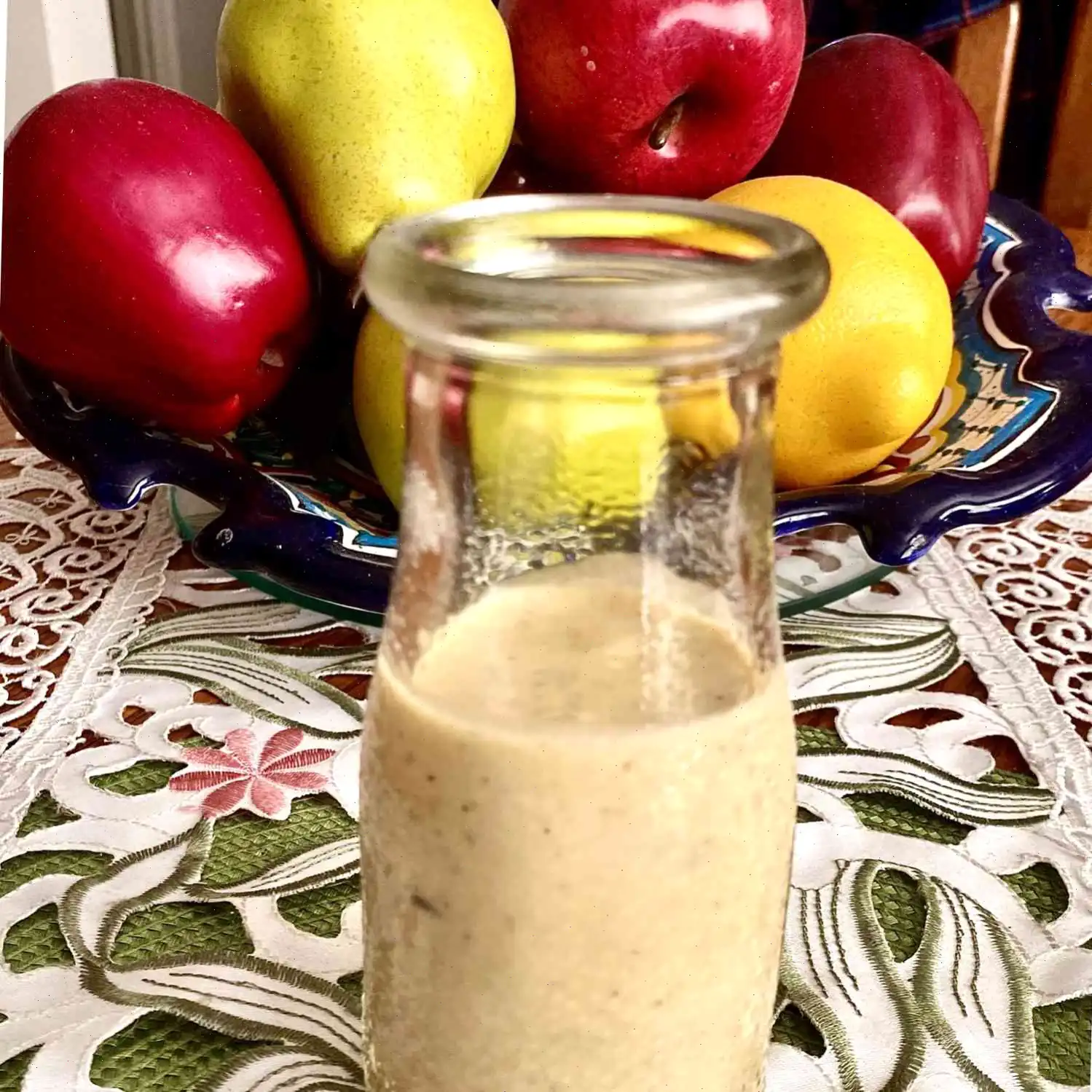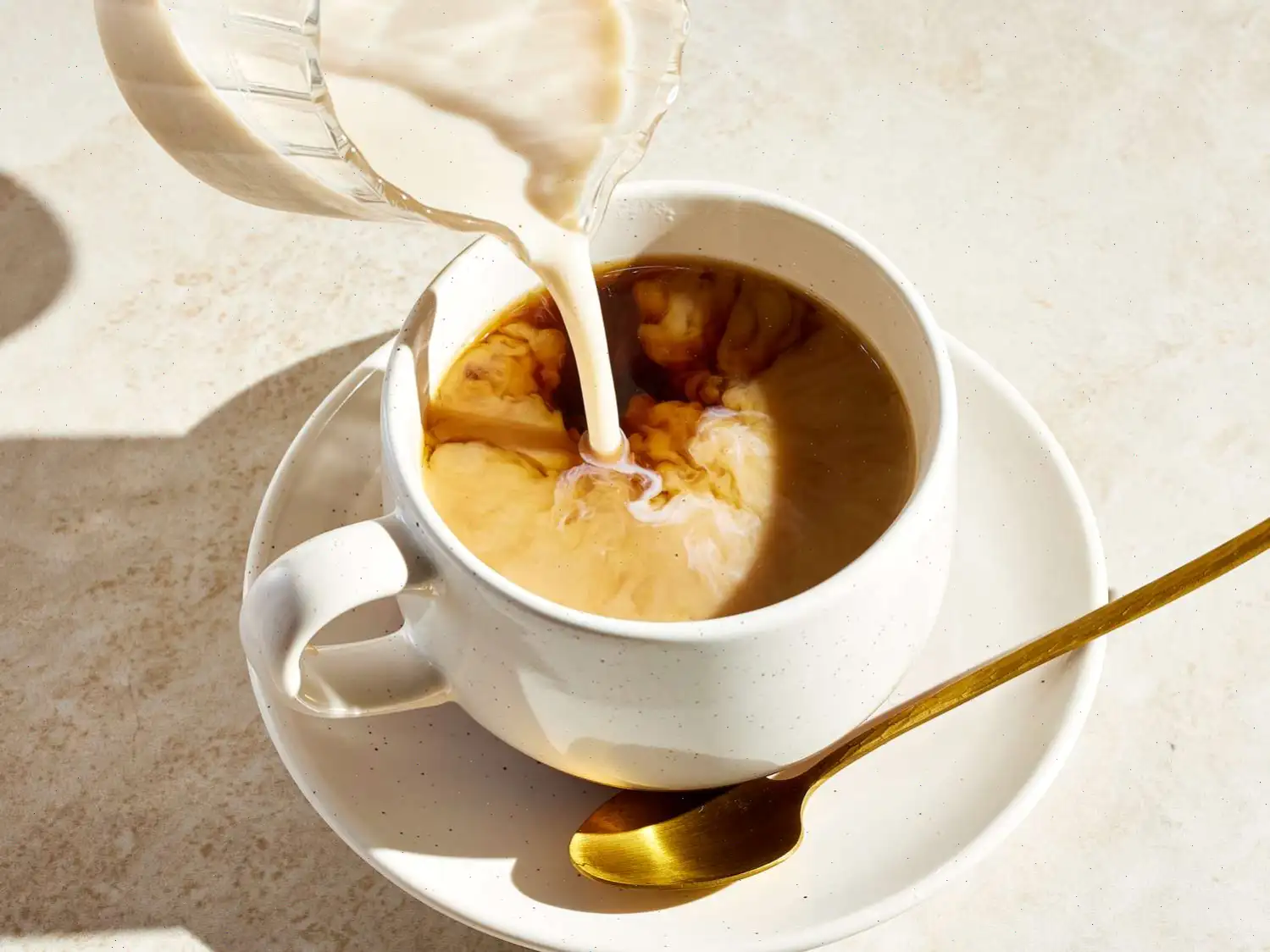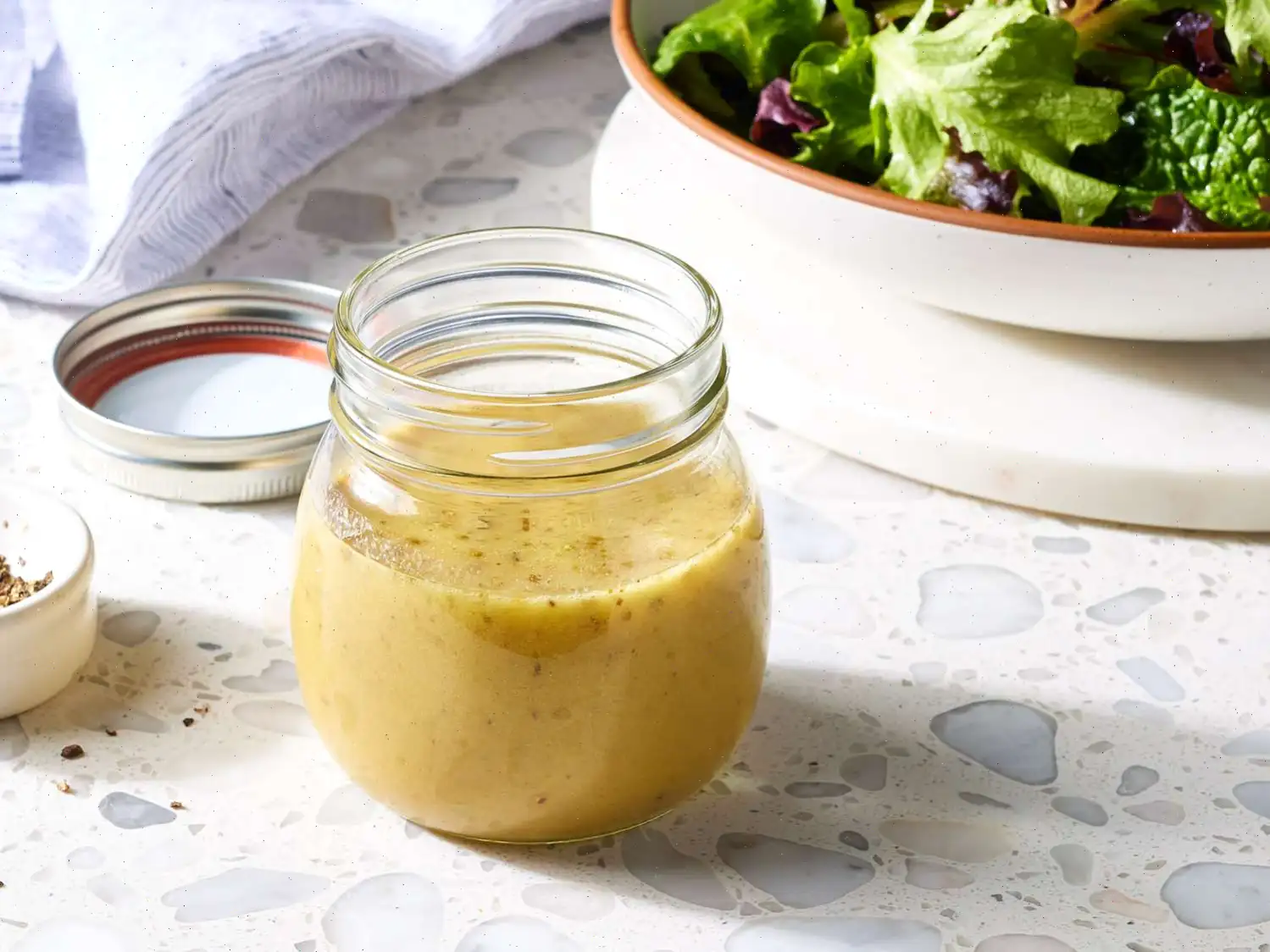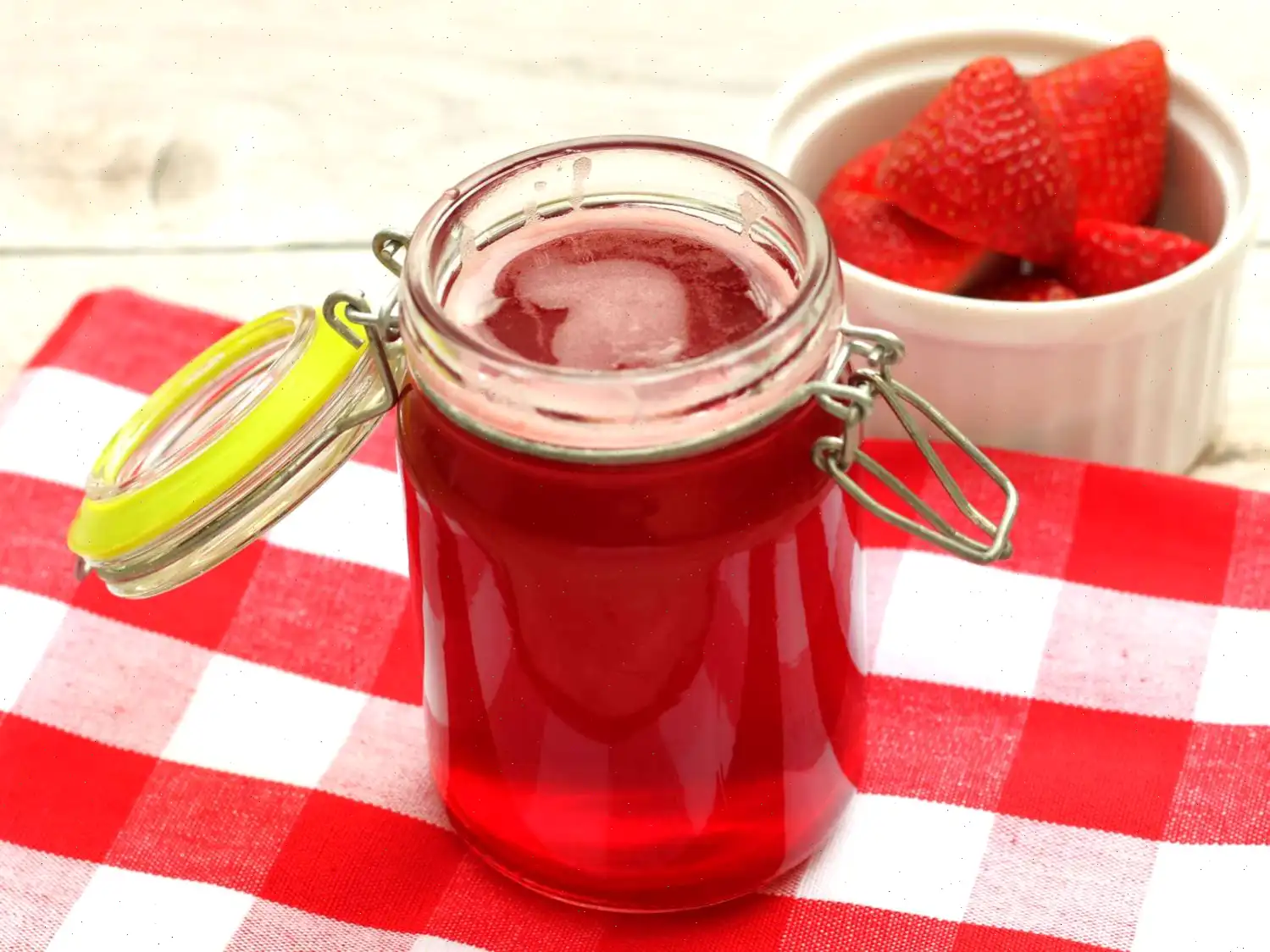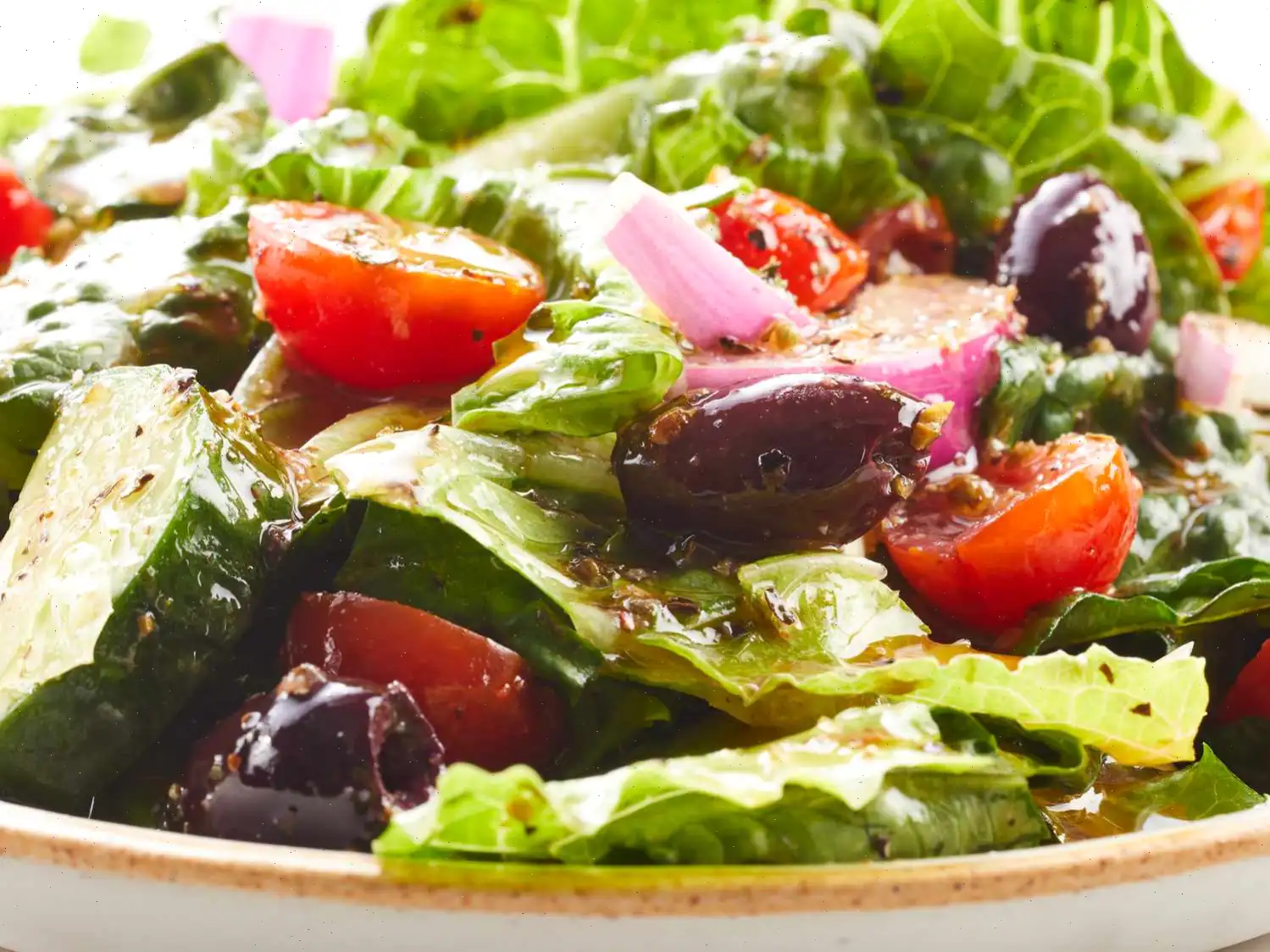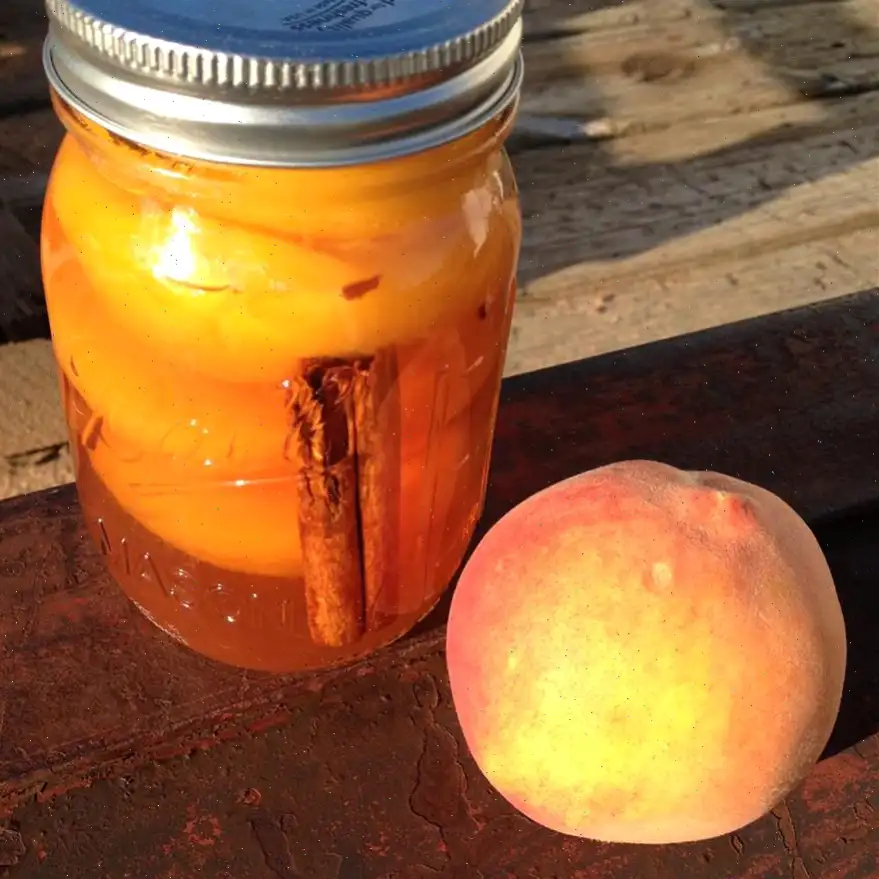
Apple Cider Vinaigrette Recipe
Ingredients
This recipe is developed with its original yield, and the ingredient amounts are automatically adjusted. However, the cooking times and steps remain the same. Note that not all recipes scale perfectly. The original recipe (1X) yields 4 servings.
- 2 tablespoons apple cider vinegar
- 2 teaspoons Dijon mustard
- 1 teaspoons pure maple syrup
- teaspoon salt
- teaspoon freshly ground black pepper
- 3 tablespoons extra-virgin olive oil
Directions
Step 1: In a small bowl, whisk together apple cider vinegar, Dijon mustard, maple syrup, salt, and pepper.
Step 2: Gradually add the olive oil to the mixture, continuing to whisk until fully incorporated.
Step 3: Pour the vinaigrette into a screw-top jar or bottle and seal tightly.
Step 4: Store the vinaigrette in the refrigerator. Before serving, shake the jar to mix the ingredients again.
Cooks Note
This recipe is easily adjustable if you need a larger batch. For bigger quantities, using an immersion blender is a great option to blend everything together quickly and smoothly.
Nutrition Facts (per serving)
| Calories | 99 |
| Total Fat | 10g (13% Daily Value) |
| Saturated Fat | 1g (7% Daily Value) |
| Cholesterol | 0mg (0% Daily Value) |
| Sodium | 201mg (9% Daily Value) |
| Total Carbohydrate | 2g (1% Daily Value) |
| Dietary Fiber | 0g (0% Daily Value) |
| Total Sugars | 2g |
| Protein | 0g (0% Daily Value) |
| Vitamin C | 0mg (0% Daily Value) |
| Calcium | 5mg (0% Daily Value) |
| Iron | 0mg (1% Daily Value) |
| Potassium | 17mg (0% Daily Value) |
* Percent Daily Values are based on a 2,000 calorie diet. Your daily values may be higher or lower depending on your calorie needs.
** Nutrient information is not available for all ingredients. Amounts are based on available nutrient data.
If you're following a medically restrictive diet, please consult your doctor or a registered dietitian before preparing this recipe for personal consumption.
This simple and tangy Apple Cider Vinaigrette is the perfect addition to any salad, offering a fresh, homemade alternative to store-bought dressings. With a few ingredients like apple cider vinegar, Dijon mustard, maple syrup, and olive oil, this vinaigrette is quick to prepare, flavorful, and healthy. It can be used as a dressing for greens, a marinade for vegetables, or even as a dip for appetizers.
History of Apple Cider Vinaigrette
Apple cider vinegar has been used in culinary practices for centuries, particularly in Europe and North America, where apples have long been a staple crop. Vinaigrette itself is a traditional French condiment, typically made from oil and vinegar, with various flavorings added. The apple cider variant likely gained popularity in the United States, where both apple cider vinegar and maple syrup are abundant, especially in regions like the Northeast and Midwest. The combination of sweet and tangy flavors in this vinaigrette reflects a fusion of early American culinary traditions.
Regional Characteristics
While Apple Cider Vinaigrette is widely used across North America, it holds a special place in the cuisine of regions known for apple and maple syrup production. The northeastern United States and parts of Canada, particularly Vermont, are renowned for their high-quality maple syrup, making this vinaigrette a local favorite. The combination of apple cider vinegar and maple syrup in the dressing creates a distinctively North American flavor profile that balances sweetness with acidity.
Differences from Similar Dishes
Apple Cider Vinaigrette differs from other vinaigrettes, such as balsamic or red wine vinaigrette, in its use of apple cider vinegar, which adds a milder, fruitier acidity compared to the sharper flavors of other vinegars. The addition of maple syrup is another unique characteristic, offering a subtle sweetness that balances the tanginess of the vinegar. This gives it a richer, more complex flavor than the basic oil and vinegar mix found in traditional vinaigrettes. The Dijon mustard in the recipe also imparts a slight heat and depth, making this vinaigrette particularly distinctive.
Where It's Commonly Served
Apple Cider Vinaigrette is typically used as a dressing for salads, particularly those featuring leafy greens like arugula, spinach, or mixed lettuces. It pairs beautifully with ingredients such as roasted vegetables, nuts, fruits (like apples or pears), and cheeses like goat cheese or feta. In addition to salads, it can be used to dress slaws or as a marinade for grilled vegetables, chicken, or fish. Its versatility makes it a popular choice for both casual meals and more sophisticated dishes, especially in autumn, when apples and maple syrup are in season.
Interesting Facts
- The health benefits of apple cider vinegar have been praised for centuries, particularly for its supposed ability to aid digestion and balance blood sugar levels.
- Maple syrup, another key ingredient in this vinaigrette, is a natural sweetener packed with antioxidants and minerals like manganese and zinc.
- Apple cider vinegar was traditionally used as a preservative before refrigeration was common. It helped to extend the shelf life of fruits, vegetables, and meats.
- This vinaigrette can easily be customized by adjusting the sweetness level. Adding a bit more maple syrup will enhance its sweetness, while more vinegar will increase its tanginess.
You can listen to this recipe in AI audio format. Simply click the play button below to listen to the content in a format that suits you best. It’s a great way to absorb information on the go!
FAQ about Apple Cider Vinaigrette Recipe
Comments
Anna Torres
02/22/2024 03:30:59 AM
I followed the recipe to a tee and absolutely adored it! 😊 I consume salads frequently and will definitely incorporate this recipe into my regular rotation. Thank you! 🌟
David Martin
12/20/2023 07:36:46 PM
I drizzled a bit more than 2 tablespoons of maple syrup over it. The result was fantastic! I served it on a bed of mixed baby greens with dried blueberries, walnuts, craisins, and goat cheese. Give it a try, you won't be disappointed!
Jacob Lee
12/24/2024 02:12:37 PM
This dish was incredibly easy to make and absolutely delicious. I quickly blanched some fresh green beans, mixed them with the flavorful vinaigrette, and let them chill in the fridge for 30 minutes. It turned out to be a fantastic cold salad, perfect for a hot day. The blend of apple cider, Dijon mustard, and maple syrup was a winning combination and received rave reviews!


